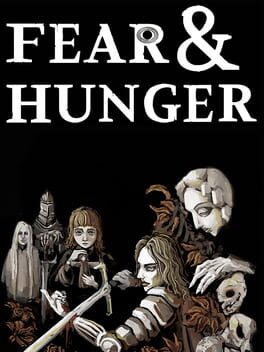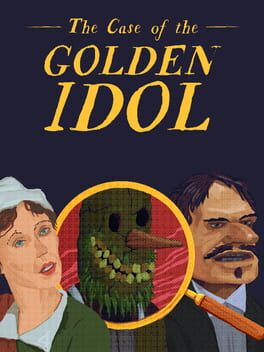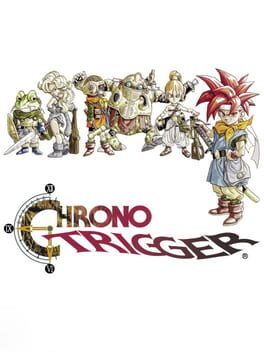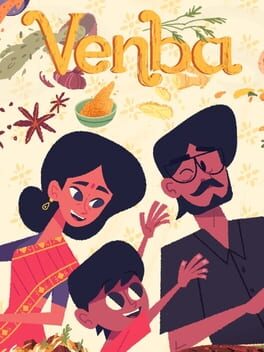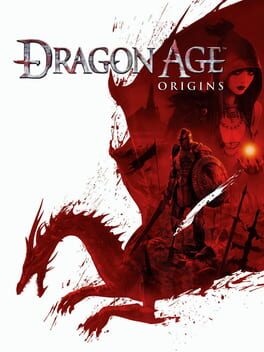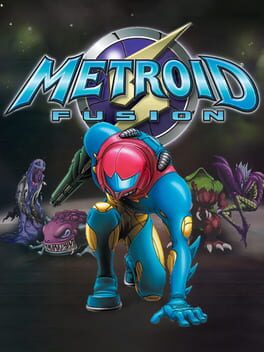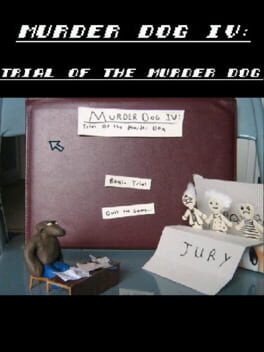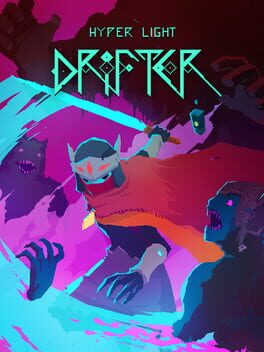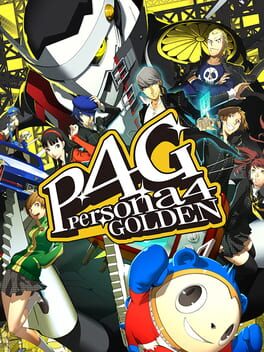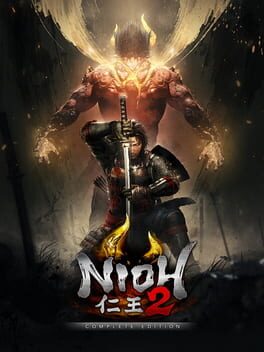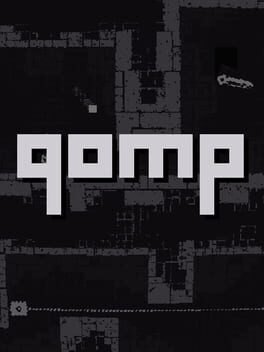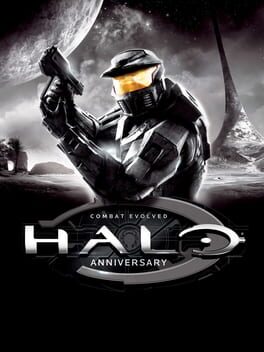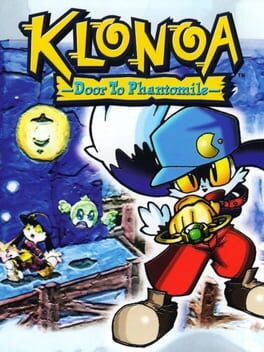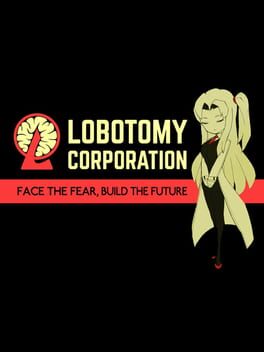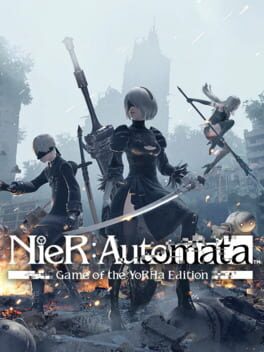2018
I'm somewhat torn about how to judge. If I were to be reductive I could just call Fear & Hunger a shock-value RPG Maker game with the usual issues of being so, but its more than that honestly.
The art of this game is palpably grotesque, even the "normal" human characters have this macabre tainted aura around them. The thick-lined styling and heavy colors are very well-made, and I can't discredit or nitpick at it at all.
The exploration of the dungeon and beyond is very stressing especially as a first impression, combat is brutal especially when you're still alone and you'll dread every encounter you can't escape. Other than that you'd be looting alot for anything that gives you an edge while you're trying to grasp the madness in every floor and room.
But honestly I dislike how hard the game goes on you on how it doesn't teach you or build scenarios to learn anything at all. Everything must be learned through trial, and with how the game treats saving you will pay dearly for screwing something up. That results in a tedious loop of you - or maybe just me - scumming a save file repeatedly trying to find out how god affinities work or what weakness should you leverage against a particular enemy. This is my biggest bane and I wish I could have a better way to explore the dungeon because I am genuinely sold on it.
The art of this game is palpably grotesque, even the "normal" human characters have this macabre tainted aura around them. The thick-lined styling and heavy colors are very well-made, and I can't discredit or nitpick at it at all.
The exploration of the dungeon and beyond is very stressing especially as a first impression, combat is brutal especially when you're still alone and you'll dread every encounter you can't escape. Other than that you'd be looting alot for anything that gives you an edge while you're trying to grasp the madness in every floor and room.
But honestly I dislike how hard the game goes on you on how it doesn't teach you or build scenarios to learn anything at all. Everything must be learned through trial, and with how the game treats saving you will pay dearly for screwing something up. That results in a tedious loop of you - or maybe just me - scumming a save file repeatedly trying to find out how god affinities work or what weakness should you leverage against a particular enemy. This is my biggest bane and I wish I could have a better way to explore the dungeon because I am genuinely sold on it.
While it's not simply a murder mystery, Golden Idol draws a still scene for you to parse, whether it's a murder or a disappearance and so on. Instead of ruffling the scene for clues to add to a list, you earn words to use on a mad-libs type scroll to make sense of assailants, objects, or actions.
I dig the art even if it shows its seams at times, the only thing that felt especially jarring is the occasional comic style cutscenes between some chapters. Being pre-rendered it strips away the charm of the art and introduces laughably bad speech boxes that look amateurish at best.
Puzzle design is fun and the story itself interested to progress with, but some level had inconsistently long leaps of logic between the solving steps that it turns into guesswork with the scroll. Since it gives a special warning when you've got two or fewer mistakes, meaning you can keep swapping pieces while using confirmed pieces as a control group. I can't describe this as me spoiling my fun, since most of those instances were when I found the solution but was struggling with composition of the pieces.
I did like how it lets you do some minigame style puzzles to unlock hints, I only needed to use it once, but it's a nice idea of breaking the thinking tedium and jog your mind elsewhere. As a fun way to re-tread the events, you can also check previous chapters and solutions to eliminate some of the guesswork for scrolls, the game even prompts you to do so at the final chapter.
Music was really nice and fitting though, especially the first expansion. It was standout kind of good.
The first expansion; the spider of Lanka is a prequel to the events of the game. Animation is improved however the scenario script was too convoluted for my tastes. I spent more time switching pieces than I did exploring the scenes.
The second expansion is a continuation that bookends exactly where the base game begins, more of the same, don't have much to say.
It does have apparent flaws, but it's a good detective puzzler with a nice story to follow.
I dig the art even if it shows its seams at times, the only thing that felt especially jarring is the occasional comic style cutscenes between some chapters. Being pre-rendered it strips away the charm of the art and introduces laughably bad speech boxes that look amateurish at best.
Puzzle design is fun and the story itself interested to progress with, but some level had inconsistently long leaps of logic between the solving steps that it turns into guesswork with the scroll. Since it gives a special warning when you've got two or fewer mistakes, meaning you can keep swapping pieces while using confirmed pieces as a control group. I can't describe this as me spoiling my fun, since most of those instances were when I found the solution but was struggling with composition of the pieces.
I did like how it lets you do some minigame style puzzles to unlock hints, I only needed to use it once, but it's a nice idea of breaking the thinking tedium and jog your mind elsewhere. As a fun way to re-tread the events, you can also check previous chapters and solutions to eliminate some of the guesswork for scrolls, the game even prompts you to do so at the final chapter.
Music was really nice and fitting though, especially the first expansion. It was standout kind of good.
The first expansion; the spider of Lanka is a prequel to the events of the game. Animation is improved however the scenario script was too convoluted for my tastes. I spent more time switching pieces than I did exploring the scenes.
The second expansion is a continuation that bookends exactly where the base game begins, more of the same, don't have much to say.
It does have apparent flaws, but it's a good detective puzzler with a nice story to follow.
2018
A fantastic experience to say the least, Chrono trigger is a very playful game if that's the correct word to use. It has one of the most gripping intros I've played in recent memory, it prods and pranks you, it tosses underhanded jokes with and at you.
The combat is one of the best turn-based systems I've played, using turn gauges instead of a back-and-forth loop gives headroom for experimentation and the combo techs (moves) gives it even more depth.
Chrono's story isn't just one item to speak of, its the main plot or each character's backstory and origin or the results of your actions and the ripple effect they cause. CT has a good way of materializing your actions into tangible results on the world. Not to forget it handles time travel very tastefully.
HOWEVER PLEASE DO NOT PLAY THIS OR THE DS PORT. Additional areas like the dark sanctum is offensively cheap filler that has you backtrack A L O T through some of the most uninspired areas. It degrades the original game and will just steal about 6 hrs of your life, please go for the PS port for the Anime cutscenes by Toriyama's studio, or for the original SNES port for faster loadings. THE ADDITIONS ARE SHAMEFUL TO BE BUNDLED WITH THIS GEM.
The combat is one of the best turn-based systems I've played, using turn gauges instead of a back-and-forth loop gives headroom for experimentation and the combo techs (moves) gives it even more depth.
Chrono's story isn't just one item to speak of, its the main plot or each character's backstory and origin or the results of your actions and the ripple effect they cause. CT has a good way of materializing your actions into tangible results on the world. Not to forget it handles time travel very tastefully.
HOWEVER PLEASE DO NOT PLAY THIS OR THE DS PORT. Additional areas like the dark sanctum is offensively cheap filler that has you backtrack A L O T through some of the most uninspired areas. It degrades the original game and will just steal about 6 hrs of your life, please go for the PS port for the Anime cutscenes by Toriyama's studio, or for the original SNES port for faster loadings. THE ADDITIONS ARE SHAMEFUL TO BE BUNDLED WITH THIS GEM.
2023
Not to be reductive towards a work of passion, but Venba doesn't say much at all despite seeming to touch on many subjects.
The cooking aspect is simple, you have incomplete recipe steps, so there's some intuitive guesswork included. However it's not difficult by any means.
Something that disappointed me is that it wasn't able to foster an interest in the food itself. They briefly gloss over the dishes being made, since they wanted to give space to include the narrative in each cooking sequence.
The story of Venba's family is realistic, as an immigrant I can't deny that I co-sign the experience even when my cultural transition wasn't as severe as the one depicted. Add upon it the tension of having a kid torn between two cultures with the added societal of trying to fit in. Yet, like most of what Venba presents, it's glossed over.
The fuzzy art is alright, but I think it doesn't serve the food justice visually. I'm not expecting Ghibli styled food, but I wouldn't know to separate the different spices if not for the text labels.
So you've got the story of immigrant parents struggling with a foreign environment with the added burden of raising a kid, the idea of balancing heritage with surroundings, they credited food consultants yet couldn't build a quantum of curiosity.
Venba - in my opinion - is a vapid representation that thinks itself an exposé on a very nuanced and intersectional topic. God I hate Canadian fund games.
The cooking aspect is simple, you have incomplete recipe steps, so there's some intuitive guesswork included. However it's not difficult by any means.
Something that disappointed me is that it wasn't able to foster an interest in the food itself. They briefly gloss over the dishes being made, since they wanted to give space to include the narrative in each cooking sequence.
The story of Venba's family is realistic, as an immigrant I can't deny that I co-sign the experience even when my cultural transition wasn't as severe as the one depicted. Add upon it the tension of having a kid torn between two cultures with the added societal of trying to fit in. Yet, like most of what Venba presents, it's glossed over.
The fuzzy art is alright, but I think it doesn't serve the food justice visually. I'm not expecting Ghibli styled food, but I wouldn't know to separate the different spices if not for the text labels.
So you've got the story of immigrant parents struggling with a foreign environment with the added burden of raising a kid, the idea of balancing heritage with surroundings, they credited food consultants yet couldn't build a quantum of curiosity.
Venba - in my opinion - is a vapid representation that thinks itself an exposé on a very nuanced and intersectional topic. God I hate Canadian fund games.
2009
After sinking more than 20 hrs in it. I still couldn't be sold on it for a handful of reasons.
Being an RPG I think it's fitting to start with the world. DA:O fantasy setting ebbs and flows in odd ways. The lore has some pretty interesting concepts like the politics between mages and templars, elven creation myths and more. Then you look at the world and all in all, it just looks like store-brand medieval fantasy. Most of what's interesting is crammed in codex entries that you get flooded with every time you venture into a new place, then it trickles until the next place etc...
Combat is something that I was waiting on, the tactical real-time system that was inherited from KOTOR is pretty good on paper. I specifically picked an elven mage to try and get the most of it. I can't say it's bad when I had some fun with it, but with how each location has a dungeon-ish area and difficult skirmishes require lots of pausing and ordering it turns to a slog, even more when you find only a few enemy types in each dungeon. Random encounter were much more fun than late dungeon battles.
The cast isn't very charming, even talking to them over campfire didn't draw much out of them, spontaneous banter between characters was the highlight and oddly it makes me feel left out of being able to have the same conversations with them. Since gaining their favor gives a bonus, you're discouraged from teasing or contesting them to get exciting responses.
To summarize DA:O, its elements are better than the total sum. Good lore with bad exposition and presentation, characters that react to each other more than new, interesting combat that is misappropriated. It's like the antithesis of a world like The Witcher, its parts aren't very remarkable yet they gell well and make up a superior sum.
Being an RPG I think it's fitting to start with the world. DA:O fantasy setting ebbs and flows in odd ways. The lore has some pretty interesting concepts like the politics between mages and templars, elven creation myths and more. Then you look at the world and all in all, it just looks like store-brand medieval fantasy. Most of what's interesting is crammed in codex entries that you get flooded with every time you venture into a new place, then it trickles until the next place etc...
Combat is something that I was waiting on, the tactical real-time system that was inherited from KOTOR is pretty good on paper. I specifically picked an elven mage to try and get the most of it. I can't say it's bad when I had some fun with it, but with how each location has a dungeon-ish area and difficult skirmishes require lots of pausing and ordering it turns to a slog, even more when you find only a few enemy types in each dungeon. Random encounter were much more fun than late dungeon battles.
The cast isn't very charming, even talking to them over campfire didn't draw much out of them, spontaneous banter between characters was the highlight and oddly it makes me feel left out of being able to have the same conversations with them. Since gaining their favor gives a bonus, you're discouraged from teasing or contesting them to get exciting responses.
To summarize DA:O, its elements are better than the total sum. Good lore with bad exposition and presentation, characters that react to each other more than new, interesting combat that is misappropriated. It's like the antithesis of a world like The Witcher, its parts aren't very remarkable yet they gell well and make up a superior sum.
2002
I still had an appetite for 2D, so I decided to go for Fusion before Prime. It's an odd entry compared to what I played before. Its linearity of including rooms where you receive objectives is an odd design choice, it does allow for a stronger story but it still feels out of place with older game elements that were passed on through multiple release.
Gameplay and map design had also received a substantial change. As now you use a hub elevator to go between areas until late game where you open shortcuts, however a lot of these shortcuts are part of closed sequences so it feels restricting, and I missed this sense of freedom.
Boss designs are either basic or rehashed, meeting a version of ridley here didn't feel as fun as it should. However being chased by the mimic was fun and I hoped to see more of it.
It's sometimes obtuse even regarding main objective progression, and there are the changes above. It's still a Metroid game above all else, and that itself means a lot.
Gameplay and map design had also received a substantial change. As now you use a hub elevator to go between areas until late game where you open shortcuts, however a lot of these shortcuts are part of closed sequences so it feels restricting, and I missed this sense of freedom.
Boss designs are either basic or rehashed, meeting a version of ridley here didn't feel as fun as it should. However being chased by the mimic was fun and I hoped to see more of it.
It's sometimes obtuse even regarding main objective progression, and there are the changes above. It's still a Metroid game above all else, and that itself means a lot.
2011
A nuanced exercise of meaninglessness. Murder dog can win by losing or lose by winning. The losing end isn't as good as it forces a subjective standard of futility compared to the grand act of defiance by the bloodthirsty pup.
One thing that stands uncontested is that his appetite for carnage is indeed voluminous.
One thing that stands uncontested is that his appetite for carnage is indeed voluminous.
2016
A nice little experience. Obviously inspired in design by Zelda and the like, however it wears its simplicity close to its heart.
Combat and enemy design is very straightforward, most enemies have one attack and maybe two for advanced enemies. Your abilities and upgrades are also without frills, Yet they're intuitive despite the game not using text at all except for the non-diegetic tutorial popups.
HLD's world has an interesting depiction. For the most part it seems foreign as a setting, with you only understanding the ques of who's an enemy or what you're remotely planning to do. I liked the idea that the game never uses text to convey anything about itself. The few NPCs that you can talk to use little moody illustrations as dialogue.
Boss designs are nice as well, their moves and attacks are simple to understand and normally fights are done in a few minutes max.
This solidifies my interpretation of it. HLD is a short game that plays like a fleeting dream. It's visuals, premise, audio, and continuation all go along with this. Completed in single digit hours, Hyper Light Drifter settles well as a familiar little pit stop along the road.
Combat and enemy design is very straightforward, most enemies have one attack and maybe two for advanced enemies. Your abilities and upgrades are also without frills, Yet they're intuitive despite the game not using text at all except for the non-diegetic tutorial popups.
HLD's world has an interesting depiction. For the most part it seems foreign as a setting, with you only understanding the ques of who's an enemy or what you're remotely planning to do. I liked the idea that the game never uses text to convey anything about itself. The few NPCs that you can talk to use little moody illustrations as dialogue.
Boss designs are nice as well, their moves and attacks are simple to understand and normally fights are done in a few minutes max.
This solidifies my interpretation of it. HLD is a short game that plays like a fleeting dream. It's visuals, premise, audio, and continuation all go along with this. Completed in single digit hours, Hyper Light Drifter settles well as a familiar little pit stop along the road.
2020
As a subsequent entry It falls from the graceful plateau that is 3, and that's even after giving it a novelty buffer since 3 was my first persona. The setting, cast, plot and ending is markedly worse imo.
The cast is a letdown honestly. For example, I thought Junpei was lacking but compared to Yoskue he's a saint. Same with the others, even teddie started off well but he fell off as I moved forward with the game. The TV setting isn't half as cool as the dark hour, the tower did much better as a dungeon as well. Even the velvet elevator looked cooler than the limo.
To give its due, it introduced good QOL additions. Like the quicksave (IK it's a re-release improvement) and the fusion search which made experimenting much more inviting.
It ends on an odd low note (even the "good" ending) which crowns it as a enjoyable letdown. Even in little details like completing social links, the game throws a lot of bullshit at you, and that's infuriating that even when social links was my highest priority I didn't like how little progress it gives you unless you fixate on a specific link.
I doubt it'll ever rise from being the worst persona I tried, but it's still a persona game all in all. Try it if you're interested, but honestly my recommendation is that you're not missing out if you decide to skip it.
The cast is a letdown honestly. For example, I thought Junpei was lacking but compared to Yoskue he's a saint. Same with the others, even teddie started off well but he fell off as I moved forward with the game. The TV setting isn't half as cool as the dark hour, the tower did much better as a dungeon as well. Even the velvet elevator looked cooler than the limo.
To give its due, it introduced good QOL additions. Like the quicksave (IK it's a re-release improvement) and the fusion search which made experimenting much more inviting.
It ends on an odd low note (even the "good" ending) which crowns it as a enjoyable letdown. Even in little details like completing social links, the game throws a lot of bullshit at you, and that's infuriating that even when social links was my highest priority I didn't like how little progress it gives you unless you fixate on a specific link.
I doubt it'll ever rise from being the worst persona I tried, but it's still a persona game all in all. Try it if you're interested, but honestly my recommendation is that you're not missing out if you decide to skip it.
Not that there's a gaping flaw with Nioh2, but it's just different take on the souls formula that wasn't to my taste.
It takes a few elements and ramps them up. The leveling tree for example unlocks a variety of overlapping skills/moves, so you get a detailed move list to swap and pick your desired move for inputs at different stances for different weapons. Loot is way more than the usual souls game so there's a lot of loot management that I didn't really like.
Instead of a bigger overworld, here we have detached stages with a level select screen. The souls-like design of unlocking shortcuts is very blunt, you're gonna find a door 2 mins or less into the stage and know you're gonna unlock it an hour or so ahead.
Yokai shifts and moves unlock an extra layer of complexity along with the dark realm mechanic.
It is an exercise of playing around with mechanics upon a derivative souls design. It is too overbearing for me but it could be the thing for you.
It takes a few elements and ramps them up. The leveling tree for example unlocks a variety of overlapping skills/moves, so you get a detailed move list to swap and pick your desired move for inputs at different stances for different weapons. Loot is way more than the usual souls game so there's a lot of loot management that I didn't really like.
Instead of a bigger overworld, here we have detached stages with a level select screen. The souls-like design of unlocking shortcuts is very blunt, you're gonna find a door 2 mins or less into the stage and know you're gonna unlock it an hour or so ahead.
Yokai shifts and moves unlock an extra layer of complexity along with the dark realm mechanic.
It is an exercise of playing around with mechanics upon a derivative souls design. It is too overbearing for me but it could be the thing for you.
2021
A genuine effort that wins you over by being good and earnest. More than simply the 1 button game.
The narrative ideation gives it so much soul and along with the audio and visual art elevates it far beyond a gimmicky limitation.
Puzzles are great and varied, and not to forget well layered which gives the game great mileage out of a few elements. The mechanical and visual design is straightforward and translates well into being simple to understand and fun to play with. You've got boss fights and they're great.
A sub 2-hour elegant game. Recommending it couldn't be easier.
The narrative ideation gives it so much soul and along with the audio and visual art elevates it far beyond a gimmicky limitation.
Puzzles are great and varied, and not to forget well layered which gives the game great mileage out of a few elements. The mechanical and visual design is straightforward and translates well into being simple to understand and fun to play with. You've got boss fights and they're great.
A sub 2-hour elegant game. Recommending it couldn't be easier.
While I'm very late to the Halo party, I still enjoyed my time a lot.
The artstyle is striking and aged gracefully. Weapon design is amazing and satisfying, with weapons like the pistol being one of my all-time favorites. And I don't think I need to flatter the music any more than you heard before.
However the remastered visuals are so generic and blind to the original art direction its painful, it's like they didn't even have an idea about how the original looked. Not the textures, nor the models nor the lighting. I switched it every few locales just to marvel at how bad and unfaithful it is.
The plot kicks off mid-action, as Master Chief is thawed to combat pursuing Covenant forces. Then as you fight through Halo you come upon The Flood. So you're always on the move with barely any time to ponder the situation.
There aren't many variations in each faction but the design doesn't make it feel lacking at all.
Firefights are usually too close to comfort and keeps you on your feet. Since most weapons are for mid-range combat at best (unless you decide to spam shots at a distance) you always need to keep on your feet to avoid damage. The assault rifle was iffy because while it spits rapidly, it doesn't deal much damage and has a relatively high TTK so I found myself swapping it rather quickly.
Level design has a stark split. While levels like halo and cartographer are wide outdoors with changes of scenery, some others like control room and the library felt like going through samey corridors with identical layout, basically filler chapters in terms of gameplay.
While not flawless, it's a strong launch-pad for such a franchise and makes me more excited for what to expect from it's sequels.
The artstyle is striking and aged gracefully. Weapon design is amazing and satisfying, with weapons like the pistol being one of my all-time favorites. And I don't think I need to flatter the music any more than you heard before.
However the remastered visuals are so generic and blind to the original art direction its painful, it's like they didn't even have an idea about how the original looked. Not the textures, nor the models nor the lighting. I switched it every few locales just to marvel at how bad and unfaithful it is.
The plot kicks off mid-action, as Master Chief is thawed to combat pursuing Covenant forces. Then as you fight through Halo you come upon The Flood. So you're always on the move with barely any time to ponder the situation.
There aren't many variations in each faction but the design doesn't make it feel lacking at all.
Firefights are usually too close to comfort and keeps you on your feet. Since most weapons are for mid-range combat at best (unless you decide to spam shots at a distance) you always need to keep on your feet to avoid damage. The assault rifle was iffy because while it spits rapidly, it doesn't deal much damage and has a relatively high TTK so I found myself swapping it rather quickly.
Level design has a stark split. While levels like halo and cartographer are wide outdoors with changes of scenery, some others like control room and the library felt like going through samey corridors with identical layout, basically filler chapters in terms of gameplay.
While not flawless, it's a strong launch-pad for such a franchise and makes me more excited for what to expect from it's sequels.
I'm glad I took the time to pick it up, as I really enjoyed its enemy oriented platforming.
Klonoa's gimmick is simple, you pick up enemies to use them in platforming and combat problems. You don't jump on heads, you don't dash, all you've got is a jump button with a slim hover and a grab button. It isn't a long game but manipulating enemies never got felt boring or creatively bankrupt in creating challenges.
The titular Klonoa's design is alright, it's cool for 97' but like most things of that year it's a bit extra although not bad by any means. Environment design and art is cool, both gameplay and art wise. Antagonist and his sidekick are hella cool though, and their narrative helps build them a lot, especially Ghadius with his sick cape.
Some scenes like the attack on the village and the farewell were shockingly heavy, it got no right to draw a tear from me.
I don't know why didn't I hear about Klonoa earlier. Boy I surely hope that this loveable mascot didn't get milked to death.
Klonoa's gimmick is simple, you pick up enemies to use them in platforming and combat problems. You don't jump on heads, you don't dash, all you've got is a jump button with a slim hover and a grab button. It isn't a long game but manipulating enemies never got felt boring or creatively bankrupt in creating challenges.
The titular Klonoa's design is alright, it's cool for 97' but like most things of that year it's a bit extra although not bad by any means. Environment design and art is cool, both gameplay and art wise. Antagonist and his sidekick are hella cool though, and their narrative helps build them a lot, especially Ghadius with his sick cape.
Some scenes like the attack on the village and the farewell were shockingly heavy, it got no right to draw a tear from me.
I don't know why didn't I hear about Klonoa earlier. Boy I surely hope that this loveable mascot didn't get milked to death.
2018
I see Lobotomy being mentioned and see that it's an anomaly management game, so naturally I put it on my list.
When I finally boot it up, it didn't take more than 30 mins to find issues and pet peeves. Like the subpar UI and scaling whether it's the sprites, the text or event box. Plus I'm greeted to a bland environment with doll designs that I didn't really appreciate personally. Although it's criminal how could you fumble an inspiration like the SCP foundation, I've played games with bad characters like neon white before so I didn't think of it a dealbreaker.
I play a few days and find a few questionable design decisions. You can retry workdays as much as you like but if you're soft-locked (due to agent death/gear loss etc..) you can only rollback to specific intervals every 5 or so days. What gives this feature its purpose is how grindy the experience is. Some missions require working for way longer past the daily goalpost due to progress resetting every day.
What compounds this grind even more is that specific anomalies require very specific combinations or measures to be worked on in relative safety. For example, I get an anomaly that requires itself to be off-screen to work successfully, how do they realistically expect players to shy their eyes from their newest anomaly for at-least the first few times they're worked on? How many times am I supposed to realistically retry this workday before giving up and looking up the required measure for it?
I strictly intended to not look up anything to not spoil the fun, but this was too much for my patience.
Was the management cycle even fun enough to bear with those faults? Not really. You can loosely group management into 3 phases/levels. Working is just sending agents to work on the anomalies to generate the prized power source, Countermeasures is when an anomaly escapes or an agent goes frenzy and damage control is needed, and ordeals are random events that trigger once you work on anomalies more than a set figure and is basically a base invasion that you need to fight off.
The management part is boring when things go as intended so you've got contrived perquisites and the invasions to keep you busy. Plus you can get extra screwed if you luck goes south when picking new anomalies.
So
- The cycle itself isn't that fun and revolves around a grind
- luck is a considerable factor to justify the rouge-lite elements
- Art direction is poor and in 10 hours I've heard like 4 tracks tops
-Writing fails to build intrigue and instead puts the effort on building bland uninteresting characters.
Honestly IDK who should be the audience for such a game. I don't want to say that it's made for crusty weebs who fixate on characters above all else but I'm dumbfounded to mention another type of audience. Didn't want to hold prejudice against a Korean studio but this further proves that Korea is a fake and gay country.
When I finally boot it up, it didn't take more than 30 mins to find issues and pet peeves. Like the subpar UI and scaling whether it's the sprites, the text or event box. Plus I'm greeted to a bland environment with doll designs that I didn't really appreciate personally. Although it's criminal how could you fumble an inspiration like the SCP foundation, I've played games with bad characters like neon white before so I didn't think of it a dealbreaker.
I play a few days and find a few questionable design decisions. You can retry workdays as much as you like but if you're soft-locked (due to agent death/gear loss etc..) you can only rollback to specific intervals every 5 or so days. What gives this feature its purpose is how grindy the experience is. Some missions require working for way longer past the daily goalpost due to progress resetting every day.
What compounds this grind even more is that specific anomalies require very specific combinations or measures to be worked on in relative safety. For example, I get an anomaly that requires itself to be off-screen to work successfully, how do they realistically expect players to shy their eyes from their newest anomaly for at-least the first few times they're worked on? How many times am I supposed to realistically retry this workday before giving up and looking up the required measure for it?
I strictly intended to not look up anything to not spoil the fun, but this was too much for my patience.
Was the management cycle even fun enough to bear with those faults? Not really. You can loosely group management into 3 phases/levels. Working is just sending agents to work on the anomalies to generate the prized power source, Countermeasures is when an anomaly escapes or an agent goes frenzy and damage control is needed, and ordeals are random events that trigger once you work on anomalies more than a set figure and is basically a base invasion that you need to fight off.
The management part is boring when things go as intended so you've got contrived perquisites and the invasions to keep you busy. Plus you can get extra screwed if you luck goes south when picking new anomalies.
So
- The cycle itself isn't that fun and revolves around a grind
- luck is a considerable factor to justify the rouge-lite elements
- Art direction is poor and in 10 hours I've heard like 4 tracks tops
-Writing fails to build intrigue and instead puts the effort on building bland uninteresting characters.
Honestly IDK who should be the audience for such a game. I don't want to say that it's made for crusty weebs who fixate on characters above all else but I'm dumbfounded to mention another type of audience. Didn't want to hold prejudice against a Korean studio but this further proves that Korea is a fake and gay country.
A game that warrants - and deserves - to be talked about over and over and over. It would be an overwhelming task for me or anyone to try and crystallize even a single perspective in a review. I will however try to compress and skirt over generalities.
To get it out of the way first, the music is absolutely perfect, flawless, and monumental. It elevates crucial moments, it gives a strong taste to areas and little conclusions, and even adds to other stretches. It is a landmark as far as OSTs go.
Automata's control is a bit iffy, you get used to and understand it but it doesn't leave a good first impression. Some elements may not sit will like the need to respec your chips (Upgrades) specially for the multipe runs needed. Also the grueling quest design which I am certain was designed intentionally to feel this way. The enemy level scaling can spike unusually which warrants grinding or using cheesy tactics.
This can be interpreted validly as Taro's criticism on ideas like game design, parallels to work culture etc... But personally I think it's overbearing and negatively affects the story experience, because some subplots are interesting and have great payoff. Also that I've played a good number of games with intentionally hostile design so this novelty is a bit worn off for me.
I can't even decide on a point of introduction for the plot and writing in general. It was some of the most admirable, charming, and memorable dramas I've experienced. It is convoluted when looked at vertically but individual beats can be taken singularly and they're beautiful in many ways. The machine lifeforms are extremely interesting in so many ways than I could express, they elevate or star in so many aspects. 9S is my dear boy.
To put it briefly, playing through automata is somewhat of an effort and a commitment, but like how most commitments are it is very rewarding. If you're willing to take in some jank, this is a must play.
To get it out of the way first, the music is absolutely perfect, flawless, and monumental. It elevates crucial moments, it gives a strong taste to areas and little conclusions, and even adds to other stretches. It is a landmark as far as OSTs go.
Automata's control is a bit iffy, you get used to and understand it but it doesn't leave a good first impression. Some elements may not sit will like the need to respec your chips (Upgrades) specially for the multipe runs needed. Also the grueling quest design which I am certain was designed intentionally to feel this way. The enemy level scaling can spike unusually which warrants grinding or using cheesy tactics.
This can be interpreted validly as Taro's criticism on ideas like game design, parallels to work culture etc... But personally I think it's overbearing and negatively affects the story experience, because some subplots are interesting and have great payoff. Also that I've played a good number of games with intentionally hostile design so this novelty is a bit worn off for me.
I can't even decide on a point of introduction for the plot and writing in general. It was some of the most admirable, charming, and memorable dramas I've experienced. It is convoluted when looked at vertically but individual beats can be taken singularly and they're beautiful in many ways. The machine lifeforms are extremely interesting in so many ways than I could express, they elevate or star in so many aspects. 9S is my dear boy.
To put it briefly, playing through automata is somewhat of an effort and a commitment, but like how most commitments are it is very rewarding. If you're willing to take in some jank, this is a must play.
